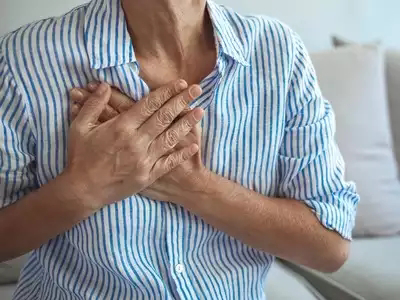Depression; its causes, symptoms, and treatment
 |
| Depression is disabling |
Depression is a mental illness that affects millions of people worldwide. It is a mood disorder characterized by persistent feelings of sadness, hopelessness, and despair that can last for weeks, months, or even years. Depression can interfere with daily activities and make it difficult to function at work, school, or in relationships. It is a serious condition that requires treatment and support.
Symptoms of Depression:
The symptoms of depression vary from person to person, but some of the most common ones include:
Persistent sadness or feelings of hopelessness
Loss of interest in activities that were once enjoyed
Changes in appetite or weight
Difficulty sleeping or oversleeping
Fatigue or lack of energy
Feelings of worthlessness or guilt
Difficulty concentrating or making decisions
Thoughts of death or suicide
Types of Depression:
There are several different types of depression, each with their own unique symptoms and characteristics. Some of the most common types of depression include:
Major Depression: This is the most common type of depression, characterized by persistent feelings of sadness, hopelessness, and despair that last for at least two weeks.
Dysthymia: This is a milder form of depression that lasts for at least two years and is characterized by chronic feelings of sadness and low mood.
Seasonal Affective Disorder (SAD): This is a type of depression that occurs during the winter months when there is less natural light. It is characterized by feelings of sadness, fatigue, and lack of energy.
Bipolar Disorder: This is a mood disorder that is characterized by alternating periods of mania and depression. During manic episodes, individuals may feel elated, irritable, or hyperactive, while during depressive episodes, they may experience feelings of sadness, hopelessness, and despair.
Causes of Depression:
The causes of depression are not fully understood, but it is believed to be the result of a combination of genetic, environmental, and psychological factors. Some of the most common causes of depression include:
Genetics: Depression can run in families, suggesting that there may be a genetic component to the disorder.
Trauma: Traumatic events such as the death of a loved one, a divorce, or a serious illness can trigger depression.
Chronic Stress: Prolonged periods of stress can cause chemical imbalances in the brain that can lead to depression.
Brain Chemistry: Imbalances in certain brain chemicals, such as serotonin and dopamine, can contribute to the development of depression.
Treatment for Depression:
Depression is a treatable condition, and there are a variety of treatments available. The most effective treatment will depend on the severity and type of depression. Some of the most common treatments for depression include:
Therapy: Talk therapy, such as cognitive-behavioral therapy or interpersonal therapy, can help individuals identify and change negative thought patterns that contribute to depression.
Medication: Antidepressant medications can help regulate brain chemistry and alleviate symptoms of depression.
Lifestyle Changes: Engaging in regular exercise, eating a healthy diet, and getting adequate sleep can all help reduce symptoms of depression.
Alternative Therapies: Alternative therapies such as acupuncture, meditation, and yoga can help reduce stress and improve mood.
Preventing Depression:
While there is no surefire way to prevent depression, there are steps individuals can take to reduce their risk of developing the disorder. Some of the most effective strategies for preventing depression include:
Exercise: Regular exercise has been shown to improve mood and reduce symptoms of depression.
Healthy Diet: Eating a healthy diet that is rich in fruits, vegetables, whole grains, and lean proteins can help support overall health and reduce the risk of depression.
Social Support: Having a strong support system of family and friends can help individuals cope with stress and reduce the risk of developing depression.
Stress Management: Engaging in stress-reducing activities such as meditation, yoga, or deep breathing exercises can help reduce the risk of depression.
Seeking Treatment: Seeking treatment for depression as soon as symptoms arise can help prevent the disorder from becoming more severe.
Conclusion
Depression is a serious mental illness that affects millions of people worldwide. It is characterized by persistent feelings of sadness, hopelessness, and despair that can interfere with daily life. While the causes of depression are not fully understood, there are a variety of treatments available that can help alleviate symptoms and improve quality of life. By taking steps to reduce the risk of developing depression, such as engaging in regular exercise, eating a healthy diet, and seeking social support, individuals can improve their overall mental health and well-being.


Comments
Post a Comment
your comments are appreciated